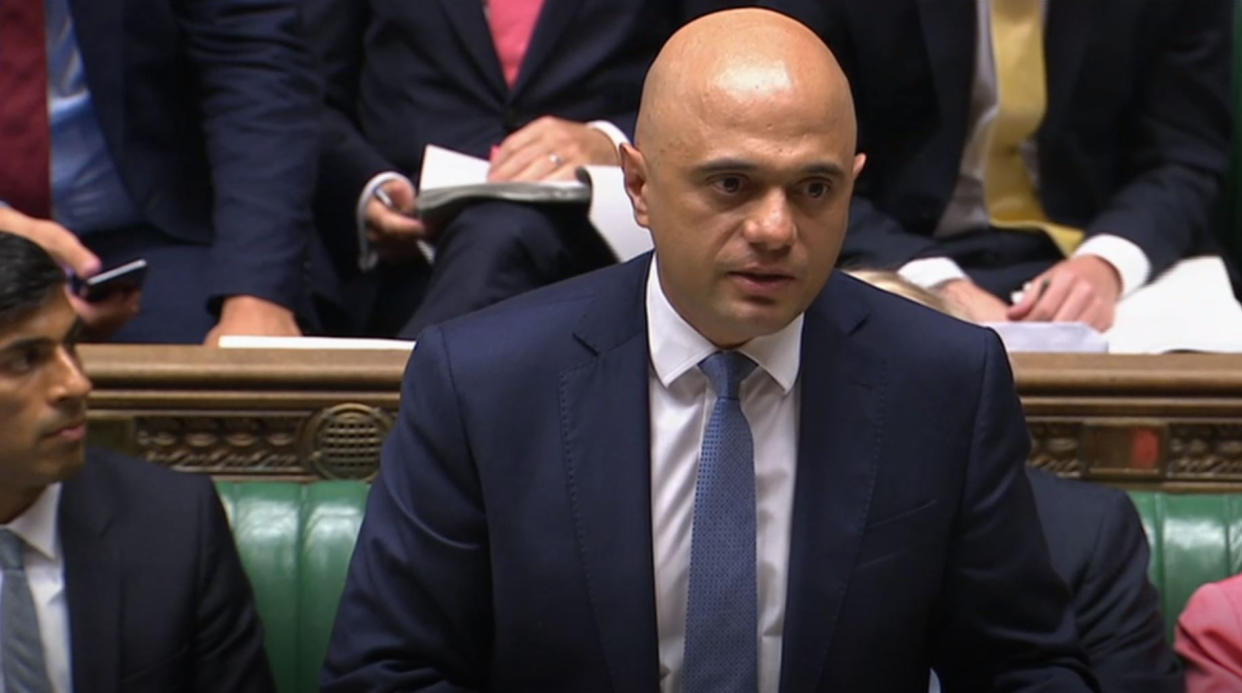Spending review or election manifesto? How chancellor batted for Boris Johnson

As the UK careens towards the brink of a snap general election, chancellor Sajid Javid on Wednesday unveiled a Tory election manifesto only faintly disguised as a spending review.
“Do not insult the intelligence of the British people,” said shadow chancellor John McDonnell. “The people will see today’s statement as the grubby electioneering that it is.”
As Javid lashed the Labour party and rebel members of his own party, even the speaker of the House of Commons, John Bercow, felt like he had to step in.
Minutes into the speech, Bercow warned Javid that he seemed to be “veering into matters outwith — not even tangentially related — to the spending round on which he is focused.”
And when Javid was focused on the spending review, he promised all kinds of everything.
READ MORE: UK chancellor unveils spending spree at fastest rate in 15 years despite Brexit
With unembarrassed brio, he told parliament that he would increase government spending by £13.8bn next year — or what he called the “fastest increase in day-to-day spending for 15 years.”
Police and defence spending will increase, as will funding for the Home Office. So too will spending on the NHS, local councils, schools, social care, homelessness, transport, and veterans. And that’s not even an exhaustive list.
“That funding allows us to start a new chapter for our public services and funds the people’s priorities,” Javid said.
McDonnell, on the other hand, blasted it as “opinion poll politics.”
“The Tories have checked what are the top three or four issues in the polls and they’ve cynically judged how little money they have to throw around to try and neutralise those issues and the concerns of people,” he said.
READ MORE: Confidence in services sector hits lowest level since Brexit vote
Election, or “giveaway”, budgets are nothing new. In 2001, then-chancellor Gordon Brown lined the pockets of families with generous tax reductions mere months before a general election. At various points, David Cameron was similarly brazen.
What makes Javid’s spending review different is the extent to which it bends the fiscal rules he claims he is committed to — meaning that the government will likely need to borrow way more than the 2% of GDP “fiscal mandate”.
Because the estimate of that mandate is based on March economic estimates — and because the economy has slowed since — “the chancellor may have more than used up his fiscal headroom for next year based on the current deficit target,” said PwC chief economist John Hawksworth in a note.
And, if we do get a 14 October election, Javid’s review will also be much fresher in the minds of the electorate than usual.
That has a downside. Instead of being able to see the effects of the spending, voters will have to take Javid’s word — that “every region and nation in the United Kingdom will benefit” — at face value.


